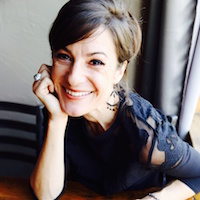
“I hate you.”
I have only said these terrible words once in my adult life, and when I did, I said them to a person I loved more than anyone.
As embarrassing as it to admit, this happened in my most recent relationship (and I am well past the age where I should be telling someone I hate them).
But, in that moment, I did. He knowingly hurt me on a level that conjured up so much pain and anger that hatred was the only way I could describe it.
The details of what happened between us are complicated, as they usually are, but essentially, he launched into emotional warfare out of fear. It ended in utter destruction—of us. All the kindness, compassion, and respect we initially had was gone, and soon so was the person he had fallen in love with.
It was absolutely heartbreaking to watch someone I loved so deeply treat me in a way I knew made him hate himself. Because, despite what I had said, that was the last thing I wanted. I wanted him to feel nothing but love from me, for me, and for himself.
In the end, it wasn’t how badly he treated me that hurt the most, it was realizing he had arrived at a point of indifference. To me, this meant he was completely detached from love and hate. He simply didn’t care one way or the other. He could “take it or leave it,” and he chose the latter.
Author, Neale Donald Walsch, writes:
“All human actions are motivated at their deepest level by one of two emotions—fear or love. In truth, there are only two emotions. These are the opposite ends of the great polarity…so it is in the moment you pledge your highest love that you greet your greatest fear.”
Fear is the energy that contracts, closes down, draws in, runs, hides, hoards, and harms. Love is the energy that expands, opens up, sends out, stays, reveals, shares, and heals. Fear grasps; love lets go. Fear rankles; love soothes. Fear attacks; love amends.
This is the only way I can explain how and why I loved someone to the degree that I could hate him. My hatred resulted from fear as well as love—almost a convergence of the two. I loved him completely, exposing myself, opening up, expanding, staying, and sharing. And when my greatest fear came true—when he left—all I wanted to do was attack and hurt him. Ironically, this was my desperate last attempt to hold on to him.
Clearly, none of this is black and white.
The spectrum of the shades and degrees of love, hate, and fear is wide and varied, but I do think all of these feelings are intimately connected. I believe this dynamic can even be seen in people who harm others—whether they know them or not. At some point in their lives, they were hurt deeply by someone they loved through abuse, rejection, abandonment, or all of the above. If they lack the capacity to handle their emotions in a healthy way, this hatred can result in cruel, senseless behavior against people who have nothing to do with the source pain.
I am in no way justifying someone inflicting pain on anyone else, no matter how severe, but I can understand where that kind of rage might come from.
Enough time has since passed that hatred is not what comes to mind when I think of him anymore. I hate what he did, but I know on some level that is not who he is. He was just battling his own fears. And, in retrospect, I am not convinced those feelings of hatred were even for him. I loved him and was afraid of losing him, no question, but the intense emotions that surfaced were because I knew I was losing myself. The person who I needed to love the most.
This was one of the most painful lessons I’ve had to learn, but perhaps the most important.
I’m learning to love myself enough to not question that all emotion shared between myself and another could be anything but love.
~
~
~
Author: Brooke Breazeale
Image: LK/Flickr / Wikimedia Commons
Editor: Danielle Beutell
Copy Editor: Catherine Monkman
Social Editor: Taia Butler
 Share on bsky
Share on bsky

Read 0 comments and reply